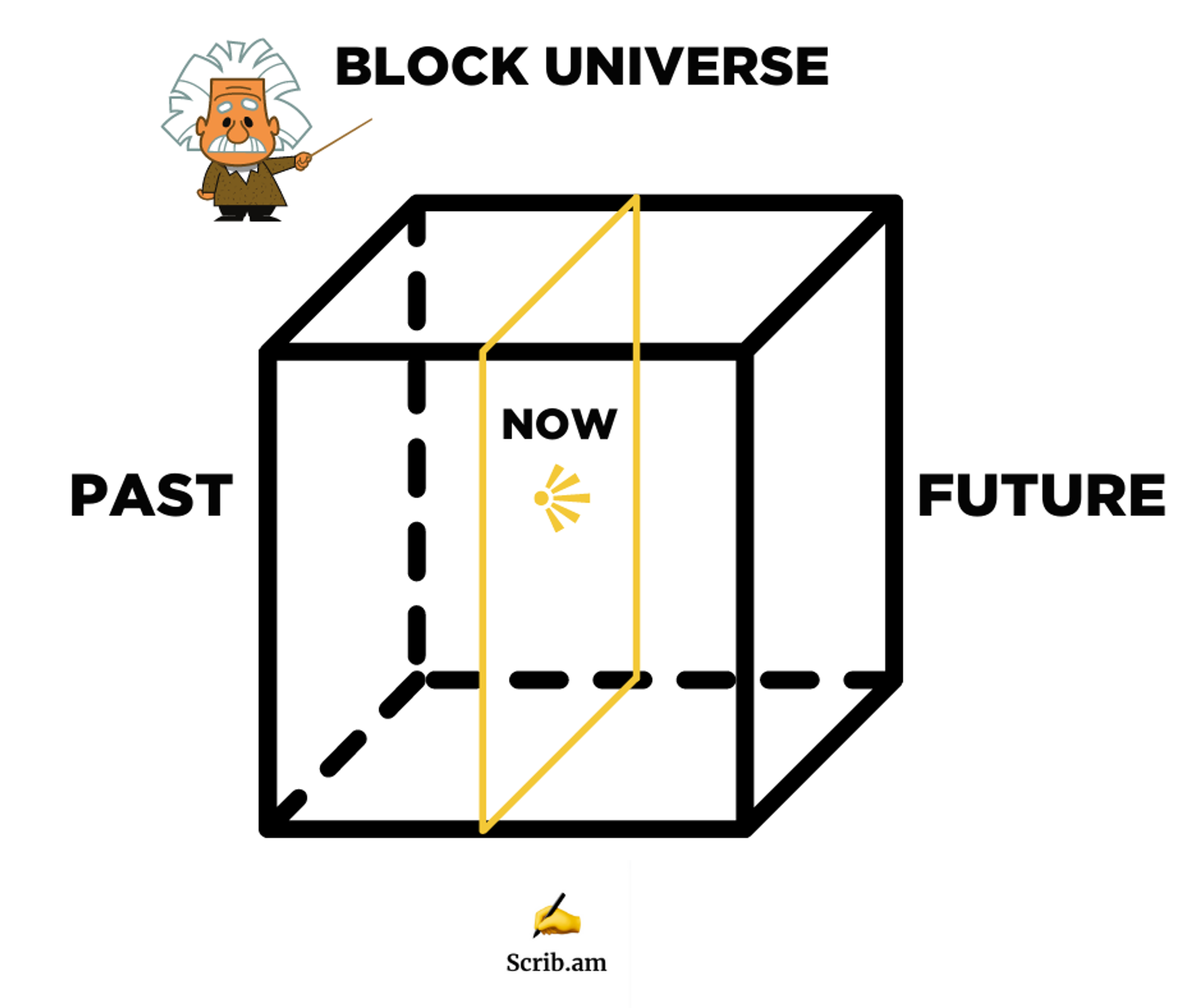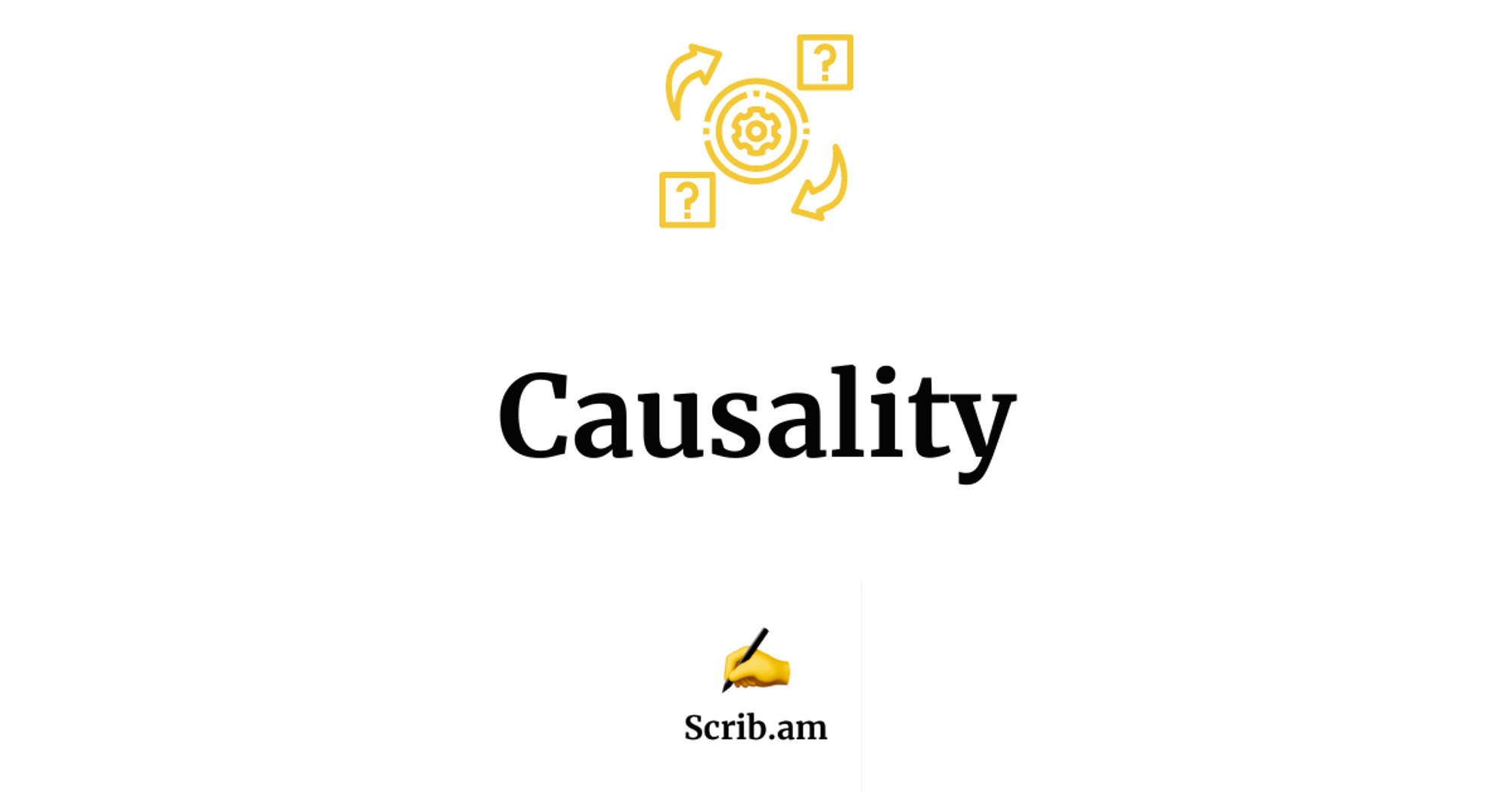Causality is a very underrated concept.
In this article, I want to explore various examples of causality, in multiple scenarios.
Clearly identifying the sequence of events which have led to a negative or a positive outcome is, in my opinion, one of the best ways to learn from the mistakes or the right moves. It enables you to potentially transfer those takeaways to a comparable situation.
That’s how we should learn the lessons of history. Unfortunately, we rarely do.

As defined by Wikipedia:
Causality is influence by which one event, process, state, or object contributes to the production of another event, process, state, or object where the cause is partly responsible for the effect, and the effect is partly dependent on the cause.
Everything is the consequence of a series of events which can be defined as a pattern of actions in a chain reaction.
Chess or checkers players will confirm that once you’re on a wrong trajectory (a series of bad moves) it’s very difficult to correct your course, especially if the opponent has noticed your blunder.
One single mistake, seemingly innocuous, can have devastating impacts further down the road.
The Butterfly Effect
You’ve probably heard of the Butterfly Effect.
In chaos theory, the butterfly effect is the sensitive dependence on initial conditions in which a small change in one state of a deterministic nonlinear system can result in large differences in a later state.
We’ve all experienced the Butterfly Effect when stuck in a traffic jam, caused by a random car which at some point slightly slowed down on the road ahead of us, causing a chain reaction.
This is called a phantom traffic jam. It follows the shape of a long rippling wave, creating a dynamic instability, where small disturbances are amplified.
Traffic jams aren’t the most problematic consequence of seemingly harmless causes.
Your personal life and society as a whole can be disturbed by poorly assessed causality.
Since those systems are highly complex, even chaotic, they’re very hard to model.
Once they’re set into motion, it’s difficult to shift their course.
Hence, it is advised not to understate the initial conditions, which can have an unsuspectedly dramatic impact on future developments.
Old age diseases are often the consequence of a set of poor decisions made when you were a young child.
Wars are almost always the consequence of a series of wrong strategic moves which might have seemed right in the first place, not accounting for their long term impact, as demonstrated by the unfortunate evolution of our relationships with Russia since the end of the Cold War.
A catastrophic event is always caused by the confluence of multiple parameters.
Our investigations should focus on the unbundling of causal factors having led to the deplorable outcome, bearing in mind that correlation does not imply causation.
Karma, Gaia & Cooperation
In Indian religion and philosophy, the causal law of karma considers that good or bad actions determine the future of someone’s existence.
The chemist James Lovelock hypothesized in his Gaia theory that we’re all part of a synergistic and self-regulating complex system, where all actions, large and small, have a systemic distributed impact. When the Chernobyl nuclear plant exploded in 1986, the radioactive clouds didn’t stop at the borders. When some countries keep on burning large quantities of coal, the gas emissions spread all around the globe, just as the ash from Eyjafjallajökull which, admittedly, had a more visible impact on air travel back in 2010.
Positive moves also have a widespread impact, as nicely put in this blog excerpt (Huffington Post).
The environmental benefits of any single nation's reductions in greenhouse gas emissions are spread worldwide, unlike the costs. This creates the possibility that some countries will want to "free ride" on the efforts of others. It's for this very reason that international cooperation is required.

Circling back to the Gaia hypothesis, we could say that humans have a disproportionate leveraged impact on their otherwise self-regulating environment.
And if you broaden your perspective into the vast universe, you could argue that our seemingly isolated actions might have a butterfly effect on a cosmic scale. We’re all in this together!
The Causality of Success (& Failure)
Causes don’t lead to consequences in a vacuum.
They take place in a network of interactions.
One of the wisest pieces of advice you can give to young people is to develop a network of connections who will influence the life they’re pursuing, on both professional and private levels.
We are the sum of our relationships.
This stance contrasts with the individualistic approach of self-development, which considers that the answers to all our existential questions should arise from our deep self, irrespective of the world around us.
A more holistic approach of causality considers how we perform in a group, both influencing its dynamics and being influenced in return.
Ignoring the two-way flow of influences is a recipe for failure.
In terms of leadership, influence by transformation appears to work better in the long run than influence by transaction (the usual top-down approach)
The first approach — transaction — emphasizes actual, actionable transactions between a leader and their subordinates. It focuses on improving an immediate situation by determining the steps that need to be taken in the short term. In the second approach — transformation — leaders act as role models and motivators who offers vision, excitement, encouragement, morale boost, and satisfaction to the followers.
Source: Harvard Business Review
As far as life events are concerned, opinions differ.
Some people consider that you should first secure the grounds of a career path, then found a family (or focus on a fulfilling life as a single person). Others consider that being happy at a private level opens the doors to all forms of satisfaction.
Since most of us live in a society where money is critical for survival, I would argue that, in the early adult phase of your life, professional fulfillment is probably the best foundation to self-development. When the basic needs are covered, you’re more receptive to all the opportunities around you.
But work shouldn’t been a burden.
Happiness (at work) leads to success, not the other way round.
Can we reverse causality?
Common sense will tell you that if the arrow of time always goes in the same direction, there’s no way to reverse the course of actions, in other words no way to reverse causality.
But is this an undeniable scientific truth?
Is retrocausality possible, i.e. having the effect precede its cause?
At a quantum level, the standard timeline from left to right doesn’t necessarily apply, events can be in a fluid relationship.
Logical objections to macroscopic time travel may not necessarily prevent retrocausality at other scales of interaction.
Source: Retrocausality, Wikipedia
And even at a macro level, according to Einstein’s Relativity Theory, we live in a “Block Universe” where the past still exists, the future already exists and the present is just an observation point in the 4-dimensional block, while the passage of time would be an illusion (if time flows, what are the banks of the river?)

The possibility that a future event might influence the present motivates some people to try to “listen to their future” to inform their present actions and potentially change the course of their destiny (French physicist and research engineer Philippe Guillemant has developed a body of work around this theory).
Sources
https://youtu.be/2JUljTvFbDA (in FR)
